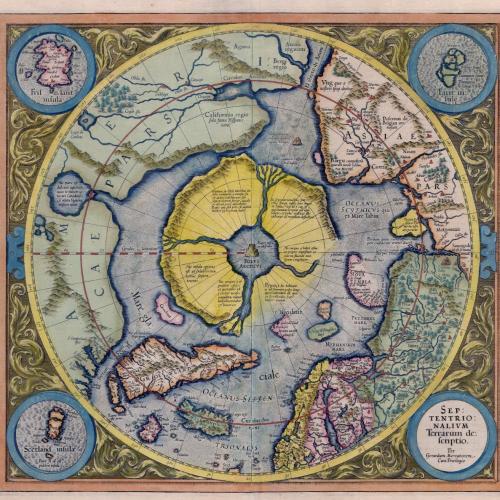Copy Link
Add to Bookmark
Report
NL-KR Digest Volume 06 No. 25

NL-KR Digest (Thu May 4 16:26:44 1989) Volume 6 No. 25
Today's Topics:
CALL FOR IJCAI-89 STUDENT VOLUNTEERS
IJCAI-89 Blackboard Workshop (Revised dates, please post)
CSLI Calendar, 4 May, 4:25
Roger Ratcliff AI Seminar
Submissions: nl-kr@cs.rpi.edu
Requests, policy: nl-kr-request@cs.rpi.edu
Back issues are available from host archive.cs.rpi.edu [128.213.1.10] in
the files nl-kr/Vxx/Nyy (ie nl-kr/V01/N01 for V1#1), mail requests will
not be promptly satisfied. If you can't reach `cs.rpi.edu' you may want
to use `turing.cs.rpi.edu' instead.
-----------------------------------------------------------------
To: nl-kr@cs.rpi.edu
Date: Thu, 4 May 89 10:46:58 EDT
From: Robert_Lindsay@ub.cc.umich.edu
Subject: CALL FOR IJCAI-89 STUDENT VOLUNTEERS
CALL FOR IJCAI-89 STUDENT VOLUNTEERS
The 1989 International Joint Conference on Artificial
Intelligence will be held in Detroit, Michigan USA from
Saturday, August 19 to Friday August 25. Student
volunteers are being sought to assist with a variety
of tasks at the conference site, such as registration,
ticket taking, messages, and answering questions.
Each volunteer will be expected to work 12 hours, and
will be provided with free conference registration
and Proceedings.
If you are interested in volunteering you will need to
supply the following information:
(1) Name and address
(2) An e-mail address if available
(3) Name of your university and department, and your
level of study
(4) The days you prefer to work, jobs desired, or
sessions you prefer to assist with
(5) Identify any language other than English in which
you can converse.
Send this information to Robert_Lindsay@UB.CC.UMICH.EDU
(Note the underline character between names)
E-mail will be acknowledged and further details supplied.
If you do not receive a reply within one week, or if you
do not have access to e-mail, send the information by
regular mail to
Prof. Robert Lindsay
MHRI
University of Michigan
205 Washtenaw Place
Ann Arbor, Michigan 48109
------------------------------
To: nl-kr@cs.rpi.edu
Date: Mon, 1 May 89 13:00 EST
From: "Dan Corkill, COINS, UMass 413/545-0156" <CORK@cs.umass.EDU>
Subject: IJCAI-89 Blackboard Workshop (Revised dates, please post)
- -----------------------------------------------------------------------------
CALL FOR PARTICIPATION
IJCAI-89 Workshop on Blackboard Systems
Sponsored by AAAI
Wednesday, August 23, 1989
Detroit, Michigan, U.S.A.
**** PLEASE NOTE NEW SUBMISSION DEADLINE ****
Description
-----------
The blackboard paradigm is a powerful technique for implementing
today's ambitious AI applications and for integrating diverse problem
solving expertise into a common framework.
The Third Annual Workshop on Blackboard Systems, like its
predecessors, provides an informal forum where researchers in
blackboard technology and developers of blackboard-based applications
exchange ideas, experiences, problems, and inspirations. The aims of
the workshop include: allowing participants to share the latest
results of their research in an informal setting, informing
participants of other researchers working on similar problems or using
similar approaches, and identifying common unsolved research issues.
Topics
------
Topics of interest for the workshop include:
* blackboard systems/shells;
* blackboard control mechanisms/techniques;
* real-time, parallel, and distributed blackboard approaches;
* performance measures for blackboard systems/applications;
* user interfaces/explanation facilities for blackboard systems;
* application development/debugging facilities for blackboard
systems;
* problems associated with fielding a blackboard-based
application;
* novel blackboard-based applications.
Submissions presenting comparison data between blackboard technology
and other AI methodologies or among alternate blackboard-based
approaches are particularly encouraged.
Format
------
The workshop is one-day long and will take place on Wednesday, August
23. Accepted papers will be grouped into three panels based on
content. Each panel will consist of a series of informal paper
presentations followed by a general discussion period. A chair for
each panel will be selected from members of the Workshop Committee.
As with previous years, a proceedings containing complete versions of
the accepted papers will be distributed at the workshop.
Submission Information
----------------------
Workshop invitations will be issued on the basis of extended abstracts
10 pages or less in length. Each extended abstract will be reviewed
by members of the Workshop Committee. At most, 2 invitations will be
issued for each accepted abstract. In keeping with an informal
workshop, the total number of invitations will be limited to 30--35
people.
Workshop Committee
------------------
Larry Baum, Boeing ATC Kevin Gallagher, UMass (co-chair)
Roberto Bisiani, CMU Barbara Hayes-Roth, Stanford
Daniel Corkill, UMass (chair) V. Jagannathan, American Cimflex
Raj Dodhiawala, FMC Victor Lesser, UMass
Robert Engelmore, Stanford Penny Nii, Stanford
Lee Erman,Teknowledge
Important Dates
---------------
May 31, 1989 Extended abstracts must be received
July 17, 1989 Notification of invitation or rejection
August 8, 1989 Completed papers must be received
August 23, 1989 Workshop date
Send four copies of extended abstracts to:
------------------------------------------
Daniel D. Corkill
Department of Computer and Information Science
University of Massachusetts
Amherst, Massachusetts 01003
U.S.A.
Internet: Cork@CS.UMass.Edu
Phone: 413/545-0156
FAX: 413/545-1249
- -----------------------------------------------------------------------------
------------------------------
To: nl-kr@cs.rpi.edu
Date: Wed, 3 May 89 17:16:46 PDT
From: emma@csli.Stanford.EDU (Emma Pease)
Subject: CSLI Calendar, 4 May, 4:25
C S L I C A L E N D A R O F P U B L I C E V E N T S
_____________________________________________________________________________
4 May 1989 Stanford Vol. 4, No. 25
_____________________________________________________________________________
A weekly publication of The Center for the Study of Language and
Information, Ventura Hall, Stanford University, Stanford, CA 94305
____________
CSLI ACTIVITIES FOR THIS THURSDAY, 4 May 1989
12:00 p.m. TINLunch
Cordura Hall Machine Translation
Conference Room Annie Zaenen
(zaenen.pa@xerox.com)
Abstract in last week's Calendar
2:15 p.m. CSLI Seminar
Cordura Hall Varieties of Context: Session 5
Conference Room Language Use in Context: How Does it Work?
(or What's Context Good For, Anyway?)
Susan Stucky
(stucky.pa@xerox.com)
Respondent: Herb Clark
Abstract in last week's Calendar
3:30 p.m. Tea
Ventura Hall
4:00 p.m. STASS Seminar
Cordura Hall Beyond Formality: Progress Report on the
Conference Room Foundations of Computation
Brian Smith
(briansmith.pa@xerox.com)
No abstract
____________
CSLI ACTIVITIES FOR NEXT THURSDAY, 11 May 1989
12:00 p.m. TINLunch
Cordura Hall Information Theory, Statistical Inference,
Conference Room and the Boot Strap
Brad Efron, Department of Statistics, Stanford
Abstract in next week's Calendar
2:15 p.m. CSLI Seminar
Cordura Hall Varieties of Context: Session 6
Conference Room Indexicality in the Substrate
Brian Smith
(briansmith.pa@xerox.com)
Respondent: John Perry
Abstract below
3:30 p.m. Tea
Ventura Hall
4:00 p.m. STASS Seminar
Cordura Hall Kris Halvorsen
Conference Room (halvorse@arisia.xerox.com)
Abstract in next week's Calendar
____________
NEXT WEEK'S CSLI SEMINAR
Varieties of Context: Session 6
Indexicality in the Substrate
Brian Smith
(briansmith.pa@xerox.com)
Respondent: John Perry
May 10
It is sometimes thought that indexicality and context-dependence are
complicating features of language and mind---that constants or fixed
names are simpler, and in that sense a more elementary case.
In this talk I will argue for almost exactly the opposite
conclusion. In particular, I will attempt to demonstrate that a
certain kind of proto-indexicality "comes for free" from the physical
substrate, and should therefore be treated as the base case. From
this point of view, it looks as if the real semantic phenomenon that
needs explaining is the rise of context-"independence".
____________
LINGUISTICS DEPARTMENT COLLOQUIUM
Discrepancies between Comprehension and
Production Implications for
Acquiring and Representing Linguistic Knowledge
Eve Clark
(eclark@psych.stanford.edu)
Friday, 5 May, 3:30
Cordura Conference Room
____________
SYMBOLIC SYSTEMS FORUM
The Interface between the Symbolic and the Subsymbolic
David Rumelhart
(der@psych.stanford.edu)
Friday, 12 May, 3:15, 60:62N
Abstract in next week's Calendar
Looking for a Theory of Information Content
Keith Devlin
(devlin@csli.stanford.edu)
Friday, 5 May, 3:15, 60:62N
Abstract in last week's Calendar
____________
CSLI VISITOR
CSLI welcomes its first Industrial Affiliate researcher, Ryo Ochitani,
from Fujitsu Laboratories Ltd., Japan. Mr. Ochitani will be here
until April 1990.
For the past five years, he has helped develope the machine
translation system ATLAS2 at Fujitsu Laboratories.
During the last year, he and several other people started a new
study on a quicker and easier system to classify sentences based on
semantic view. As a start, they collected two million Japanese text
samples, and classified several hundred sentences manually. Mr.
Ochitani is interested in studying what kind of system would utilize
this information most efficiently.
If you wish to contact him, his email address is
ochitani@csli.stanford.edu.
------------------------------
To: nl-kr@cs.rpi.edu
Subject: Roger Ratcliff AI Seminar
Reply-To: wsalter@BBN.COM
Date: Thu, 27 Apr 89 18:20:52 EDT
From: wsalter@BBN.COM
AI SEMINAR
WEDS, MAY 3, 1:30 PM (NOTE ODD TIME)
SECOND FLOOR LARGE CONFERENCE ROOM, BBN, 10 MOULTON ST.
ROGER RATCLIFF, NORTHWESTERN UNIVERSITY
CONNECTIONIST MODELS OF MEMORY AND FACTS ABOUT HUMAN MEMORY
In this talk, connectionist models of memory are proposed and
evaluated. The main class of models uses variants of the multilayer
encoder model with the backpropagation delta rule for learning. The
autoassociative model with the delta rule for learning is also
evaluated in a much less exhaustive fashion. The models are applied to
standard list learning procedures in which items are studied in a
learning phase and then tested for retention. In contrast to most
implementations of connectionist models, items or vectors are presented
for learning one at a time (or in small groups of items within a
rehearsal buffer) and an item is not trained further during the
remainder of the list. This scheme mimics learning in many traditional
memory experiments in which long lists of words are presented without
repetition.
This sequential learning scheme leads to two serious and central
problems for the multilayer model. First, well learned information is
forgotten rapidly as new information is learned. Second,
discrimination between studied items and new items either decreases or
is nonmonotonic as a function of the amount of rehearsal or number of
learning trials each studied item receives. Both these results
provide problems for the model because both predictions are
inconsistent with large bodies of data from memory research. To
address the first problem, manipulations of the network within the
multilayer model were examined (for example holding some of the
network weights constant and adding extra hidden units) but none of
these significantly affected the forgetting functions. To address the
second problem, several variants on the multilayer model were examined
including learning as increments on a prelearned memory system,
modifications only to a context portion of an item vector, and
training an additional node to represent old items when turned on at
test. None of these modifications produced adequate discrimination
between studied and new items as a function of the amount of learning.
The constraints demonstrated by these studies are important because
they provide limitations on the scope and role of connectionist models
in learning and forgetting in human memory and more generally in
situations in which the whole set of information to be learned is not
all available throughout learning.
------------------------------
End of NL-KR Digest
*******************























